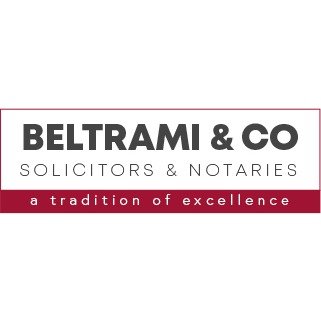Best New Business Formation Lawyers in Glasgow
Share your needs with us, get contacted by law firms.
Free. Takes 2 min.
List of the best lawyers in Glasgow, United Kingdom
About New Business Formation Law in Glasgow, United Kingdom
New Business Formation Law in Glasgow ties into the larger framework of UK company law. The process encompasses decisions related to the business structure, company name, registration, tax and reporting obligations, among others. Whether you plan to start a sole proprietorship, partnership, limited company, or LLP, each business form comes with its unique set of legal obligations and liabilities. Glasgow has a vibrant business community, and UK's pro-enterprise policy landscape is underpinned by clear legal provisions designed to facilitate new business setup.
Why You May Need a Lawyer
While it's possible to set up a business without legal help, having a lawyer can prevent potential issues down the road. Lawyers can provide expert advice on the best business structure, explain the legal implications of each business form, help with contracts and lease agreements, and ensure compliance with local and national laws. Additionally, a lawyer can be an invaluable asset if your business has multiple shareholders, overseas operations, or complex tax situations.
Local Laws Overview
In Glasgow, as with the rest of the UK, new businesses are governed by The Companies Act 2006, among other regulations. Local laws dictate every aspect of business formation, including choosing a unique company name, registering the business with Companies House, setting up a company address, appointing directors and shareholders and preparing 'memorandum of association' and 'articles of association'. Moreover, businesses must register for Corporation Tax within 3 months of starting to do business.
Frequently Asked Questions
1. Can I run a business from home in Glasgow?
Yes, you can run a business from home in Glasgow. However, certain types of businesses may require planning permissions or licenses. Also, if you're a tenant, you need to check with your service provider before starting a home-based business.
2. I have a business idea, but not sure where to start legally. What should I do?
Starting a new business involves several legal steps including determining your business structure, registering your business name, applying for tax registrations and licenses, etc. It’s recommended to seek advice from a business lawyer to navigate these legal requirements.
3. Should I set up a limited company or operate as a sole trader?
It depends on your circumstances. Operating as a sole trader is less complex but comes with unlimited personal liability. Setting up a limited company can provide liability protection but comes with more paperwork. A lawyer can help decide the best structure for your situation.
4. How much does it cost to start a business in Glasgow?
It depends on your business nature, structure, licensing requirements among other factors. For instance, registering a limited company with Companies House costs £12. It’s best to budget for starting cost, including legal advice.
5. Can foreigners start a business in Glasgow?
Yes, there are no restrictions for foreigners on owning businesses in the UK, but they must register with Companies House and comply with UK laws and regulations.
Additional Resources
Business Gateway, Scottish Enterprise, and Glasgow Chamber of Commerce provide supports for start-ups. Also, Companies House and HM Revenue and Customs are key bodies to consult during business formation. These resources are instrumental for legal advice and business support.
Next Steps
If you need legal assistance in New Business Formation, identify a reputed law firm or lawyer with strong expertise in business law. Preparing a list of questions about your business plan and seeking a consultation with them shall be your next steps. While seeking legal help may involve additional cost, it protects your business against legal pitfalls in the long run.
Lawzana helps you find the best lawyers and law firms in Glasgow through a curated and pre-screened list of qualified legal professionals. Our platform offers rankings and detailed profiles of attorneys and law firms, allowing you to compare based on practice areas, including New Business Formation, experience, and client feedback.
Each profile includes a description of the firm's areas of practice, client reviews, team members and partners, year of establishment, spoken languages, office locations, contact information, social media presence, and any published articles or resources. Most firms on our platform speak English and are experienced in both local and international legal matters.
Get a quote from top-rated law firms in Glasgow, United Kingdom — quickly, securely, and without unnecessary hassle.
Disclaimer:
The information provided on this page is for general informational purposes only and does not constitute legal advice. While we strive to ensure the accuracy and relevance of the content, legal information may change over time, and interpretations of the law can vary. You should always consult with a qualified legal professional for advice specific to your situation.
We disclaim all liability for actions taken or not taken based on the content of this page. If you believe any information is incorrect or outdated, please contact us, and we will review and update it where appropriate.










